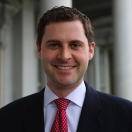
Across the state, Nebraskans continue to speak out against Senate Republicans’ refusal to do their job and give Judge Garland a hearing and vote. From law professors to local newspapers, Nebraska voices have sounded a disappointed tone in Senators Fischer and Sasse’s decision to inject partisanship into the Supreme Court and in their refusal to carry out certain parts of their jobs for partisan gain.
Nebraska Law Professors: “Even more importantly, if the Senate were to refuse to hold hearings and a vote on Judge Garland, it would set a dangerous precedent encouraging future Senate majorities to obstruct nominations made by another party’s President. No limiting principle restricts this practice to vacancies occurring close to an election. This time the vacancy occurred nine months before the election. Next time it could be a year, or eighteen months. Surely, this precedent would serve neither the Court nor the country well. The judiciary should be above the political fray. If the Senate refuses to hold hearings and a vote on this exceptionally talented, qualified, respected, moderate, and non-ideological nominee, it would risk infecting the Supreme Court and the entire federal judiciary with the unfortunate toxic political climate plaguing the nation more generally. The resulting damage could persist for years.”
Omaha World Herald: Furthermore (Editorial). “Not holding a hearing on the nomination of Judge Merrick Garland to the Supreme Court isn’t the only thing Congress isn’t doing. The list of bogged-down legislation includes a bill to aid Flint, Michigan, where 100,000 residents are struggling with lead-contaminated water, and $1.9 billion in emergency funding to combat the Zika virus. It’s also been years since Congress actually approved each of the annual appropriations bills to fund the government, and it’s looking like lawmakers could again be forced to pass a patchwork spending bill come September. One answer might be in a resolution introduced by Rep. Pete Sessions, R-Texas, who wants to officially recognize magic as a ‘rare and valuable art form and national treasure.’ Ending the gridlock would, indeed, be wizardry.”
Lincoln Journal Star: A worthy nominee for high court (Editorial). “By nominating Merrick Garland for the U.S. Supreme Court, President Barack Obama took firm command of the principled high ground in American governance. If Senate Republicans stick to their vow to not even hold hearings to consider his nomination they’ll set a new low for partisanship. Garland is precisely the sort of person who helps ‘make America great.’ Consider his career. Garland was well on his way to a lucrative legal career. He made partner in only four years at Washington D.C. –based Arnold & Porter, one of the largest law firms in the county Then Garland made the surprising decision to stop chasing the almighty dollar to become an assistant U.S. attorney. Thanks to that decision, Garland was ready when the country needed a razor-sharp and ultra-competent public servant to bring American terrorist Timothy McVeigh to justice after the Oklahoma bombing that killed 168 people. Garland was the lead investigator and put together the trial team that prosecuted McVeigh. Oklahoma Gov. Frank Keating, a Republican, wrote of Garland, ‘During the investigation Merrick distinguished himself in a situation where he had to lead a highly complicated investigation and make quick decisions during critical times. Merrick Garland is an intelligent, experienced and evenhanded individual.’ Garland is no stranger to Washington’s dysfunctional judicial confirmation process. He waited in limbo for 19 months before the Senate finally approved his appointment to the U.S. Court of Appeals in 1997, where he has earned a reputation as a fair and meticulous judge.”
The Grand Island Independent: Supreme Court seat should not be kept open (Editorial). “Article I sets forth the legislative branch, a Congress consisting of a Senate and a House, elected by vote of the people. Article II sets forth the executive branch, a president, elected by vote of the people. Article III sets forth the judicial branch, not elected by vote of the people directly, but by Article II, Section (2), appointed by the president with the advice and consent of the Senate. The importance of the judicial branch functioning in interpreting and applying laws passed by Congress and signed into law by the president is set forth by Article II as it says that when a judicial vacancy occurs, the president shall nominate a replacement, and, with advice and consent of the Senate, appoint someone to fill the vacancy on the Supreme Court. The continuation of a functioning Supreme Court is clearly and plainly set forth. Politicians do it quickly and cooperate, advise and consent.”


